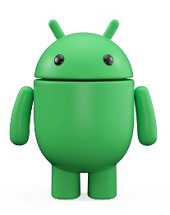| Google Cast Adds Output Switcher |
| Written by Harry Fairhead | |||
| Friday, 19 January 2024 | |||
|
Google has updated its Cast feature to make it easier to send video or audio from apps to be displayed on other devices such as TVs. Google Cast can be used to send output, video or audio, from devices such as phones or tablets to TVs or audio devices. For the user, all the casting involves is pressing a button on the app.
For the developer, you use the Google Cast SDK to modify an Android, iOS, or Web app so it directs its streaming video and audio to a TV or sound system. Your app becomes the remote control to play, pause, seek, rewind, stop, and otherwise control the media. To work at the receiving end, Google Cast either needs a Chromecast dongle that plugs into the TV's HDMI port, or it has to have Chromecast built in. Google says: "We have been continuously working with various OEMs to bring Chromecast built-in to new devices. Last year, we launched Chromecast built-in to new speakers, while also introducing the receiver support on docked Pixel Tablets." Google TVs come with Chromecast built-in, and Google says there are now over 220 million monthly active Google TV and other Android TV OS devices. The update to Google Cast is designed to make it easier to move media between devices. The new feature, Output Switcher, is accessible from the Android System UI is designed to allow cross-device transfer and control in one place. It also provides better volume control, device categories, and support for devices with custom protocols. Output Switcher is a feature of the Cast SDK that lets users transfer output between local and remote playback of content starting with Android 13. The goal is to help sender apps easily and quickly control where the content is playing. Output Switcher can switch the content playback among the phone speaker, paired Bluetooth devices, and remote Cast-enabled devices. Google recommends that apps that offer Cast support should display the Google Cast icon prominently on every screen with playable content, preferably in the top right corner. Those apps using the autoplay option will automatically move on to the next video when the first has ended without any user action, offering a continuous viewing experience. Google has also improved the timing of device discovery, and says that it will soon be possible to cast to devices nearby in a whole new way when you have a Pixel Pro phone and a docked Pixel Tablet. In that case, users can transfer ongoing music from their Pixel Pro phone to a docked Pixel Tablet just by bringing the phone closer to the docked tablet. Similarly, they can transfer the music to their phone from a docked Pixel Tablet just by holding the phone closer to the tablet. This feature needs Output Switcher integration as a prerequisite.
More InformationRelated ArticlesGoogle Opens Chromecast To Devs Google Cast For Audio - A Solution? To be informed about new articles on I Programmer, sign up for our weekly newsletter, subscribe to the RSS feed and follow us on Twitter, Facebook or Linkedin.
Comments
or email your comment to: comments@i-programmer.info |
|||
| Last Updated ( Friday, 19 January 2024 ) |



